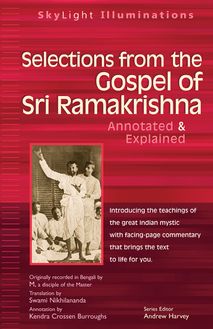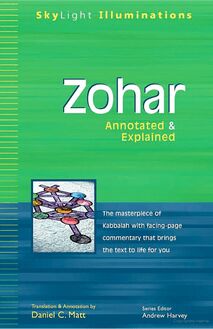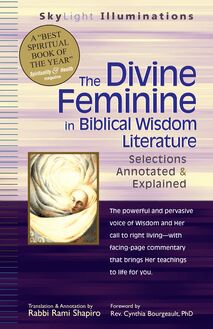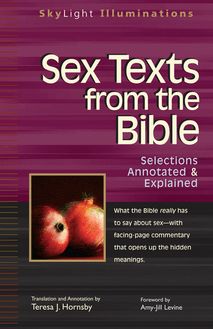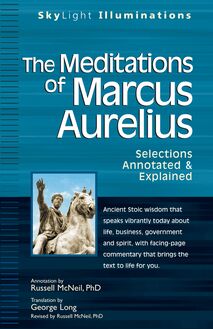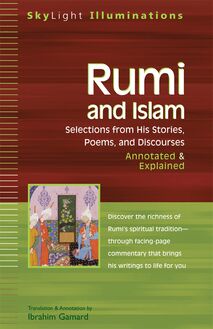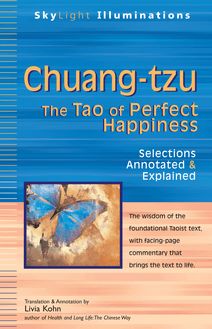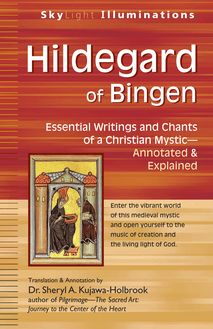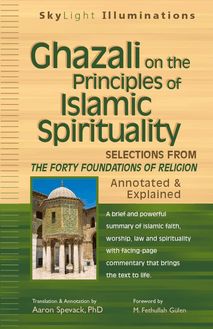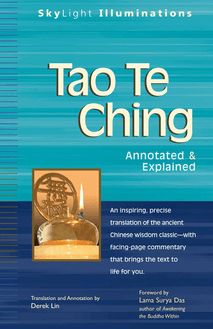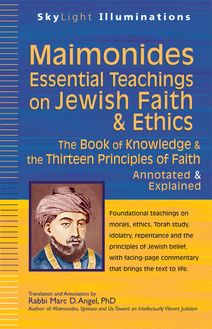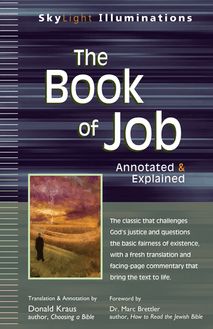The Hidden Gospel of Matthew , livre ebook
128
pages
English
Ebooks
2011
Vous pourrez modifier la taille du texte de cet ouvrage
Obtenez un accès à la bibliothèque pour le consulter en ligne En savoir plus
Découvre YouScribe en t'inscrivant gratuitement
Découvre YouScribe en t'inscrivant gratuitement
128
pages
English
Ebooks
2011
Vous pourrez modifier la taille du texte de cet ouvrage
Obtenez un accès à la bibliothèque pour le consulter en ligne En savoir plus
Publié par
Date de parution
30 juin 2011
Nombre de lectures
1
EAN13
9781594733697
Langue
English
The previously untold story of Matthew’s Gospel—brought to life for today’s readers.
Matthew’s Gospel stands as the first book of the Christian Testament, visible to all the world for almost two thousand years. But there is something hidden in Matthew’s Gospel. The document was not written at one time by one person—it is an edited document, bringing together different sources of tradition.
The Hidden Gospel of Matthew: Annotated and Explained takes readers deep into the text to find the words and events that have the strongest connection to the historical Jesus. Ron Miller reveals the underlying story of Matthew to readers, giving them a full appreciation of the book’s message, uncovering a portrait of Jesus that at times resembles the gnostic Christ and sage teacher of the Gospel of Thomas more than it does traditional Christianity.
Publié par
Date de parution
30 juin 2011
Nombre de lectures
1
EAN13
9781594733697
Langue
English
Selected Books in the SkyLight Illuminations Series
The Art of War-Spirituality for Conflict: Annotated & Explained
Bhagavad Gita: Annotated & Explained
The Book of Mormon: Selections Annotated & Explained
Celtic Christian Spirituality: Essential Writings-Annotated & Explained
Chuang-tzu: The Tao of Perfect Happiness-Selections Annotated & Explained
Confucius, the Analects : The Path of the Sage-Selections Annotated & Explained
Dhammapada: Annotated & Explained
The Divine Feminine in Biblical Wisdom Literature: Selections Annotated & Explained
Ecclesiastes: Annotated & Explained
The End of Days: Essential Selections from Apocalyptic Texts-Annotated & Explained
Ethics of the Sages: Pirke Avot -Annotated & Explained,
Ghazali on the Principles of Islamic Spirituality: Selections from Forty Foundations of Religion -Annotated & Explained
Gnostic Writings on the Soul: Annotated & Explained
The Gospel of Philip: Annotated & Explained
The Gospel of Thomas: Annotated & Explained
Hasidic Tales: Annotated & Explained
The Hebrew Prophets: Selections Annotated & Explained
The Hidden Gospel of Matthew: Annotated & Explained
The Infancy Gospels of Jesus: Apocryphal Tales from the Childhoods of Mary and Jesus-Annotated & Explained
John and Charles Wesley: Selections from Their Writings and Hymns-Annotated & Explained
The Lost Sayings of Jesus: Teachings from Ancient Christian, Jewish, Gnostic, and Islamic Sources-Annotated & Explained
Maimonides-Essential Teachings On Jewish Faith and Ethics: The Book of Knowledge and the Thirteen Principles of Faith-Annotated & Explained
The Meditations of Marcus Aurelius: Selections Annotated & Explained
Native American Stories of the Sacred: Annotated & Explained
Philokalia: The Eastern Christian Spiritual Texts-Annotated & Explained
Proverbs: Annotated & Explained
The Qur an and Sayings of Prophet Muhammad: Selections Annotated & Explained
Rumi and Islam: Selections from His Stories, Poems, and Discourses-Annotated & Explained
The Sacred Writings of Paul: Selections Annotated & Explained
Saint Augustine of Hippo: Selections from Confessions and Other Essential Writings-Annotated & Explained
The Secret Book of John: The Gnostic Gospel-Annotated & Explained
Selections from the Gospel of Sri Ramakrishna: Annotated & Explained
Sex Texts from the Bible: Selections Annotated & Explained
Spiritual Writings on Mary: Annotated & Explained
St. Ignatius Loyola-The Spiritual Writings: Selections Annotated & Explained
Tanya , the Masterpiece of Hasidic Wisdom: Selections Annotated & Explained
Tao Te Ching: Annotated & Explained
The Way of a Pilgrim: The Jesus Prayer Journey-Annotated & Explained
Zohar: Annotated & Explained
The Hidden Gospel of Matthew: Annotated & Explained
2004 First Printing Translation, annotation, and introductory material 2004 by Ron Miller
All rights reserved. No part of this book may be reproduced or transmitted in any form or by any means, electronic or mechanical, including photocopying, recording, or by any information storage and retrieval system, without permission in writing from the publisher.
For information regarding permission to reprint material from this book, please mail or fax your request in writing to SkyLight Paths Publishing, Permissions Department, at the address / fax number listed below, or e-mail your request to permissions@skylightpaths.com.
Library of Congress Cataloging-in-Publication Data Bible. N.T. Matthew. English. Miller. 2004. The hidden Gospel of Matthew : annotated & explained / translation & annotation by Ron Miller. p. cm.-(SkyLight Illuminations series) Includes bibliographical references. ISBN 1-59473-038-5 1. Bible. N.T. Matthew-Criticism, interpretation, etc. I. Miller, Ron, 1938- II. Title. III. SkyLight illuminations. BS2573 2004 226.2 05209-dc22 2004011174
10 9 8 7 6 5 4 3 2 1
Manufactured in the United States of America Cover Design: Walter C. Bumford III Cover Art: Portrait of a Man. Roman period, ca. 165 A.D. Encaustic on limewood. ECM 1473. Reproduced by permission of the Provost and Fellows of Eton College.
SkyLight Paths Publishing is creating a place where people of different spiritual traditions come together for challenge and inspiration, a place where we can help each other understand the mystery that lies at the heart of our existence.
SkyLight Paths sees both believers and seekers as a community that increasingly transcends traditional boundaries of religion and denomination-people wanting to learn from each other, walking together, finding the way .
SkyLight Paths, Walking Together, Finding the Way, and colophon are trademarks of LongHill Partners, Inc., registered in the U.S. Patent and Trademark Office.
Walking Together, Finding the Way ® Published by SkyLight Paths Publishing A Division of LongHill Partners, Inc. Sunset Farm Offices, Route 4, P.O. Box 237 Woodstock, VT 05091 Tel: (802) 457-4000 Fax: (802) 457-4004 www.skylightpaths.com
To Jim and Carrie with love and gratitude
Contents
Introduction
A New Look at an Old Text
1. Complicated and Paradoxical Beginnings
2. The World s Greatest Sermon
3. Coming Down from the Mountain
4. Choosing Disciples to Share in the Work
5. Criticism Follows a Man of Controversy
6. Teaching in Parables
7. A Mentor s Death Brings New Challenges
8. Who Is This Man?
9. On the Road to Jerusalem
10. Challenging the Religious Establishment
11. Warnings about the Future
12. The Path from Death to Life
Suggested Readings
About SkyLight Paths
Copyright
Introduction
A Hidden Gospel
There are two ways that a gospel can be hidden. The first is like the Gospel of Thomas, buried in the sands of Egypt for many years. The second is like a manuscript whited over so that a second document can be written on the parchment, or like a picture covered with paint so that the canvas can be used again for a second picture. The technical term for this is palimpsest , coming from two Greek words meaning rubbed smooth and again.
The gospel we shall be examining was not buried in the desert like the Gospel of Thomas but lies hidden under the layers of the gospel we call Matthew. The hidden gospel indicates the authentic message of the Teacher from Nazareth before the overlay of later traditions that were edited into the present form of Matthew s gospel. Finding the hidden gospel of Matthew entails painstakingly removing the later layers of tradition so that the original message is disclosed.
This text contains more of the teachings attributed to Jesus than any other document and is thus a primary doorway to Jesus s message, a message needing to be mined in the stone quarry of accumulated layers of Christian tradition found in the text of Matthew. It is a difficult and challenging enterprise but well worth the effort. Our post-9/11 world cries out for the wisdom of Jesus s message.
Reading Sacred Texts
People read sacred texts in radically different ways. This applies not only to atheists, Jews, and Hindus but to Christians as well, in all their denominational varieties. As a matter of fact, the way a Christian approaches the biblical text reveals more about that person s kind of faith and religious understanding than any denominational label. Christians within the same denomination, even the same local church, often read the Bible from radically different perspectives. Conflict about how to see and read the Bible might well be the single greatest issue dividing Christians today.
Conservative Protestant Christians (both the more moderate evangelical Christians and the more extreme fundamentalists) use biblical inerrancy as their axiom in reading the Christian Testament. They use the word true univocally (i.e., with only one meaning) and thus consider the biblical text true in every respect. They tend to believe that truth about the age of the planet can be found in the Bible just as much as truth about God. The rest of their theology follows as corollaries from that axiom. Using this premise of biblical inerrancy, they achieve an external authority that offers them a secure foothold of belief. Axioms, of course, are not proved, but evangelical and fundamentalist Christians believe that the biblical text itself confirms their starting point-a process that strikes outsiders as a cyclical form of reasoning.
Conservative Roman Catholic Christians find their axiom in an infallible magisterium, which indicates the authoritative teaching role of church officials, especially the pope. Again, although an axiom cannot strictly be proved, evidence for adherents of this position is found both in the scriptural claim (Matthew 16:18) that Jesus founded his church on Peter and in the perseverance of this church, understood as Peter s bark, through the storms of history. Here too an external authority offers security to the church member who might otherwise flounder.
Rationalists read the text within the parameters of the empirical sciences and what they consider to be the right use of reason. Such readers may think of themselves as atheists or humanists, as Christians or as members of another faith. What they share in common is their assumption that anything that does not fit the criteria of the current scientific consensus must be rejected. The scientific methodology itself provides their ultimate axiom, and they are unwilling to stray beyond its conclusions. Texts are pared down to a residue that seems compatible with reason, a term usually understood as synonymous with the current scientific worldview.
Comfortable with none of these three approaches, others (Christians and non-Christians alike) come to these texts from a vantage point that I term transformational . Representing my own approach to the material, the axiom in this instance is human experience, understanding that experience in the broadest context possible. In other words, truth claims must somehow ring true with one s own sense of li
